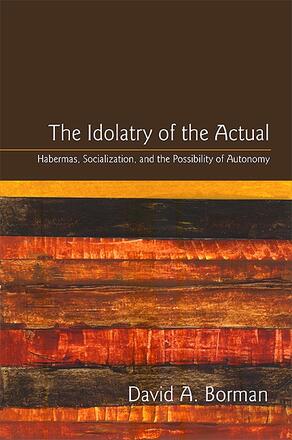
The Idolatry of the Actual
Habermas, Socialization, and the Possibility of Autonomy
Alternative formats available from:
Reinvigorates Jürgen Habermas’ early critical theory.
Description
The first close study of Jürgen Habermas's theory of socialization, a central but infrequently discussed component of his defense of deliberative democracy, The Idolatry of the Actual charts its increasingly uneasy relationship with the later development of Habermas's social theory. In particular, David A. Borman argues that Habermas's account of the development of the subject and of the conditions under which autonomy can be realized is fundamentally at odds with the increasingly liberal tenor of his social theory. This leads Borman to return to the set of concerns that guided Habermas's social theory in the early 1970s, paying particular attention to questions of crisis and the means by which public reactions are shaped—questions perhaps more relevant today than they have been at any time since the 1930s. Using Habermas's early work as a framework, Borman constructs an original critical-theoretical argument that draws on research in the sociology of schooling to understand how attitudes toward work, reward, achievement, class, gender, and race are shaped in economically functional ways, and draws on philosophical and empirical scholarship to demonstrate the challenges of multicultural integration and the impact of both on the potential for progressive social transformation.
David A. Borman is Visiting Assistant Professor of Philosophy at the University of Winnipeg.
Reviews
"This is perhaps the clearest and most compelling study of the late Habermas. Borman has mastered both Habermas's primary texts and scholarship on his work, and also provides a convincing view of many of Habermas's key ideas and their relevance for understanding contemporary societies." — Douglas Kellner, George F. Kneller Chair in the Philosophy of Education, UCLA